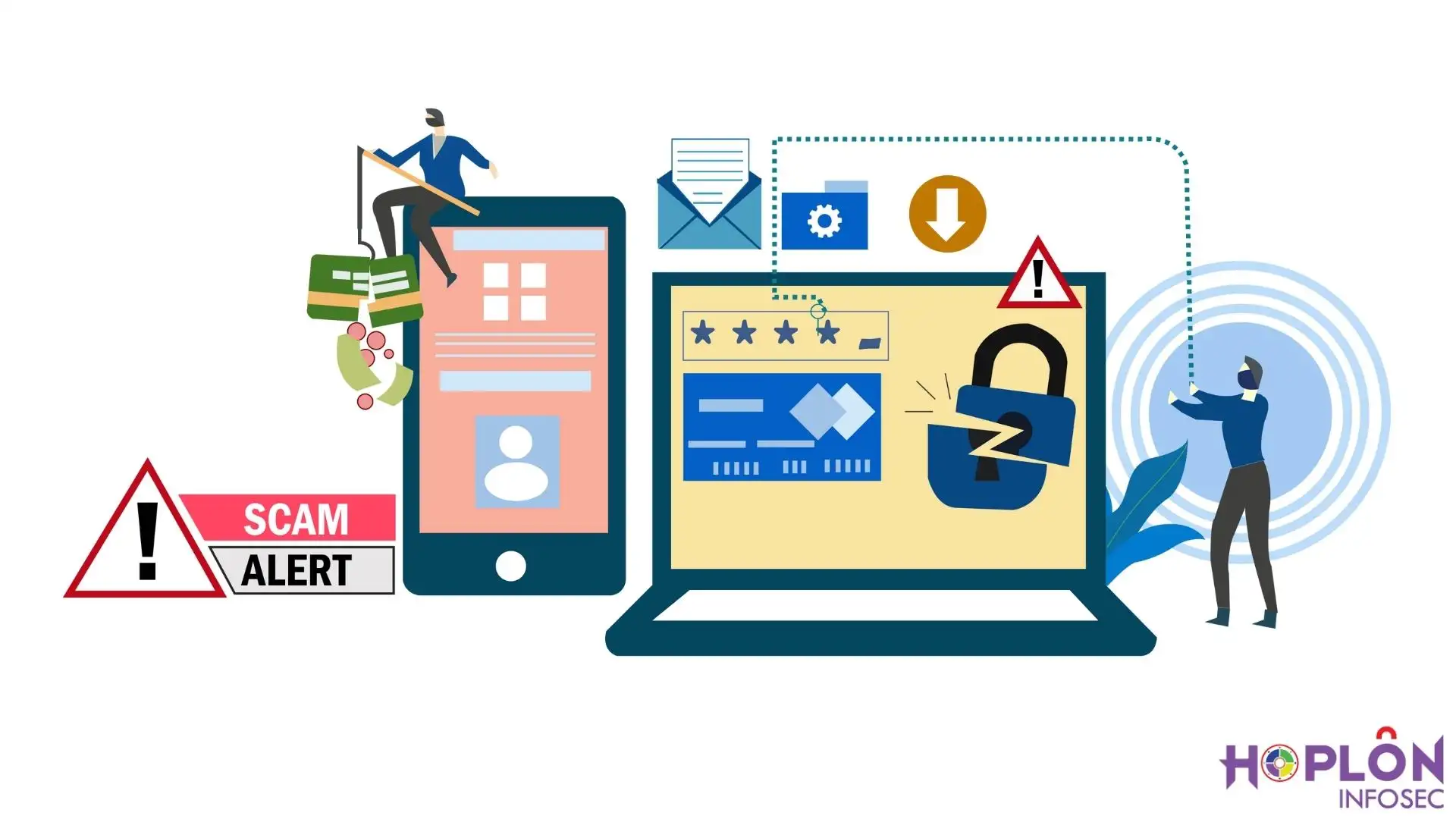Do you know Why Small Businesses Face Cyber Attacks & How to Stay Safe from this? In an increasingly interconnected world, the digital landscape has become both a playground for innovation and a battlefield for cybersecurity threats. A recent study revealed that 43% of cyberattacks target small businesses, yet only 14% of these businesses are prepared to defend themselves. The misconception that only large corporations are attractive targets leaves many small enterprises vulnerable, creating a perfect storm for cybercriminals.
Small businesses are often seen as low-hanging fruit by hackers. Lacking robust IT infrastructure and dedicated cybersecurity teams, these organizations inadvertently become easy prey. Cybercriminals exploit these weaknesses, launching attacks that can range from phishing scams to ransomware, often crippling operations and tarnishing reputations. The financial implications are severe; a single cyberattack can cost a small business an average of $200,000, pushing many to the brink of closure.
The rise in remote work and reliance on digital platforms has amplified small businesses’ vulnerabilities. With employees accessing sensitive data from personal devices or unsecured networks, the potential for breaches increases exponentially. A 2023 report highlighted that 60% of small businesses have experienced a cyber incident within the past year, underscoring the urgent need for preventive measures.
Hackers often view small businesses as gateways to more extensive networks. Many SMEs act as third-party vendors for more giant corporations, making them attractive targets for supply chain attacks. Cybercriminals gain access to larger ecosystems by breaching a smaller entity, causing widespread disruption. This tactic has become alarmingly common, with 70% of recent supply chain breaches from small vendors.
The consequences of a cyberattack extend beyond financial losses. Small businesses risk losing customer trust, which is incredibly hard to rebuild. Studies show that 88% of consumers are less likely to return to a company after a breach, significantly if personal information has been compromised. For many SMEs, reputational damage can be as devastating as monetary costs.
Regulatory compliance adds another layer of complexity. Many small businesses need to understand their industries’ legal requirements for data protection. Non-compliance can result in hefty fines and legal battles, further compounding the fallout from a cyber incident. This lack of awareness often makes them even more susceptible to attacks, as they must implement the necessary safeguards.
Cybersecurity insurance is a growing trend but is not a catch-all solution. While it can mitigate some financial damage, it doesn’t prevent the attack itself or repair the reputational harm caused. Moreover, insurance premiums are rising as attacks become more frequent, making it an increasingly costly option for small businesses struggling with tight budgets.
Despite the grim statistics, there is hope for small businesses willing to take proactive steps. Many cost-effective solutions, such as endpoint security and Employee training, can significantly reduce vulnerabilities. Small businesses that invest in regular security assessments and adopt a culture of cybersecurity awareness are better equipped to fend off potential threats.
The digital age heralds a transformative era that necessitates a profound shift in mindset for small business owners. As technology becomes deeply intertwined with every facet of business operations, cybersecurity can no longer be relegated to the background as an afterthought; instead, it must be integrated as a fundamental pillar of any comprehensive business strategy. In today’s interconnected world, where data breaches and cyber threats are ever-present realities, safeguarding your digital assets is as crucial as managing finances or customer relations.
Startling statistics reveal that nearly 95% of security breaches stem from human error, underscoring the critical importance of addressing this vulnerability. Educating employees on cybersecurity best practices emerges not only as one of the simplest steps but also among the most effective defenses against potential cyber threats. By implementing straightforward yet impactful training programs, businesses can significantly reduce their risk exposure and fortify their defenses against costly and damaging breaches.
Imagine your team equipped with the knowledge to identify phishing attempts before they reach inboxes or adopt secure password practices without hesitation—each employee becomes an integral part of a robust defensive line. Investing in such education is akin to building an invisible fortress around your company’s invaluable data and reputation. It’s time to recognize that cybersecurity is not just a technical issue but a strategic imperative that demands attention and action from every level within an organization.
The increasing sophistication of cyberattacks is a wake-up call for businesses of all sizes. Threat actors are using AI-driven tools and exploiting social engineering techniques to breach systems that once seemed secure. Small companies must remain vigilant, continuously updating their defenses to keep pace with the evolving threat landscape.
Collaboration is another critical element in combating cyber threats. Partnering with trusted cybersecurity firms like Hoplon Infosec can give small businesses the expertise and tools they need to stay protected. By leveraging professional services, SMEs can focus on their core operations while ensuring their digital assets remain secure.
As the cyber threat landscape grows more complex, the stakes for small businesses continue to rise. However, these challenges can be overcome with the right strategies and partners. Small businesses can build a resilient future by taking action today, safeguarding their operations and customers in an increasingly digital world.
Small Businesses Face Cyber Attacks: Empower them
The digital age offers immense opportunities for small businesses but comes with significant risks. Cybersecurity threats have surged recently, with small businesses increasingly becoming targets. In 2023 alone, over 28% of small businesses reported encountering malware attacks, highlighting the urgent need for robust defenses to safeguard their operations and data.
One of the primary challenges for small businesses is limited resources. Around 55% of small enterprises need a dedicated IT department, leaving them ill-equipped to identify and mitigate cyber threats. This gap in expertise makes them vulnerable to attacks such as ransomware, which affected 37% of small businesses globally last year.
Phishing remains one of the most prevalent attack methods, accounting for nearly 90% of all data breaches in small businesses. Cybercriminals exploit human error, tricking employees into revealing sensitive information or clicking on malicious links. In a recent survey, 65% of small business owners admitted they needed formal training programs to educate employees about phishing risks.
The financial impact of cyberattacks is staggering. A breach can cost a small business anywhere from $50,000 to $1 million, depending on the severity and recovery measures required. For companies operating on tight budgets, these losses can be catastrophic. Alarmingly, 60% of small businesses close within six months of a significant cyberattack.
Another overlooked aspect is the reliance on outdated systems and software. Approximately 41% of small businesses still use legacy systems that need more security features to fend off modern threats. Hackers exploit these vulnerabilities, gaining unauthorized access to networks and stealing sensitive data.
Small businesses are also grappling with supply chain risks. A study revealed that 62% of cyberattacks on small businesses are linked to third-party vulnerabilities. Hackers use smaller enterprises as entry points to compromise more giant corporations, making SMEs critical nodes in the global cybersecurity landscape.
Despite these challenges, small businesses can take meaningful steps to bolster their defenses. Implementing endpoint security solutions has proven effective, reducing malware risks by up to 70%. Additionally, 80% of breaches could be prevented through basic measures like solid password policies and multi-factor authentication, which are simple yet powerful deterrents.
Investing in cybersecurity training is another crucial measure. Studies show that businesses with well-trained employees experience 45% fewer incidents than those without training programs. By fostering a culture of cybersecurity awareness, small businesses can significantly reduce human error and enhance their overall security posture.
Collaboration with cybersecurity experts can also make a difference. Small businesses that partner with specialized firms like Hoplon Infosec benefit from tailored solutions, such as dark web monitoring and AI-driven threat detection. This proactive approach ensures continuous protection against evolving cyber threats.
Cloud-based security solutions are an increasingly popular choice among small businesses. Cloud platforms provide scalable and cost-effective options, enabling real-time threat detection and updates. Nearly 68% of small companies that transitioned to cloud security reported improved incident response times and reduced vulnerabilities.
In today’s digital frontier, small businesses must recognize cybersecurity. By implementing strategic defenses and partnering with experts, they can protect their assets, maintain customer trust, and thrive in a competitive marketplace. The path to empowerment lies in recognizing cybersecurity as a fundamental aspect of business resilience and growth.
Affordable Cybersecurity Solutions for Small Businesses
Cybersecurity is often perceived as expensive, but small businesses can now access cost-effective solutions tailored to their needs. Reports indicate that 64% of small businesses cite budget constraints as the primary reason for inadequate cybersecurity measures. However, technological advancements have made affordable options such as endpoint protection and automated threat monitoring more accessible, with some solutions costing as little as $5 per device per month.
Endpoint Security Solutions
- Bitdefender GravityZone Business Security: A cost-effective tool offering comprehensive malware and ransomware protection.
- Sophos Intercept X for Endpoint: Provides advanced threat detection with AI-driven features.
Cloud-Based Security Services
- Microsoft Defender for Business: Affordable protection for devices and data in the cloud.
- Cisco Umbrella: A DNS-layer security solution that prevents threats before they reach your network.
Password Management Tools
- LastPass Teams: Simplifies password management with secure sharing and storage.
- Dashlane for Business: Offers enterprise-level security at an affordable price.
Cloud-based security services have emerged as a game-changer for small enterprises. These services offer scalable and budget-friendly protection, eliminating the need for costly on-premise infrastructure. Statistics show that businesses using cloud-based cybersecurity tools experience 40% fewer breaches than those relying on traditional methods. Moreover, managed security service providers (MSSPs) allow small businesses to outsource their cybersecurity needs, saving up to 25% on IT costs annually.
Employee training remains one of the most cost-efficient defenses. Programs focusing on phishing awareness and secure password practices can reduce breach risks by 45%. Notably, 72% of breaches are attributed to human error, highlighting the importance of educating employees. By combining affordable tools with strategic investments in training, small businesses can bridge the cybersecurity gap without straining their budgets.
For more:
https://blog.lastpass.com/posts/why-small-businesses-are-a-target-for-cybersecurity-attacks
https://www.comtechsystems.in/blog/why-small-businesses-are-8069




